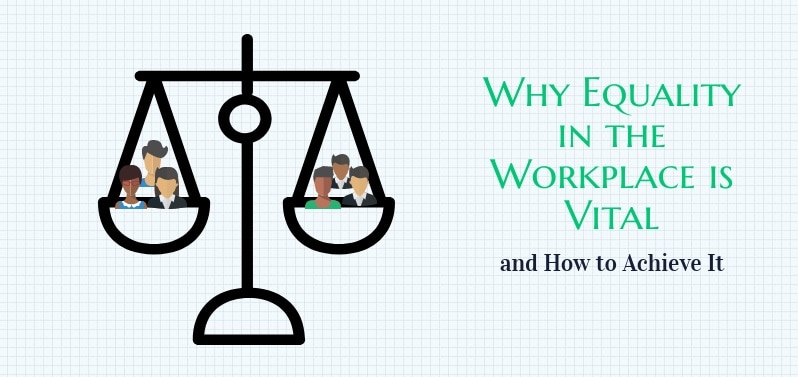
Why Equality in the Workplace is Vital, and How to Achieve It
Inclusive workplaces respect and protect the principles of fairness, dignity, diversity and respect for all workers. Promoting equality for all employees should be a core focus for any business, with wide-ranging benefits for the company and employees. The simplest path is an equality and diversity policy, backed up by practical measures to promote it.
Promoting equality in the workplace is a mix of legal and moral requirements
The fundamental steps to ensure equal treatment of employees and stakeholders is to understand anti-discrimination obligations under Australian law. Anti-discrimination laws in Australia prevent employers from treating any person unfairly because they belong to a particular group in society. These “protected attributes” include treating someone differently based on their race, sex, religion, physical or mental disability, and others.
Australia is also a signatory to a range of United Nations treaties promoting equality and protecting against discrimination.
There are also elements of promoting equality that aren’t required by law, but make good business sense. This can include allowing flexible work schedules for individual circumstances, removing barriers to promotions for workers with different needs, and celebrating the diversity of viewpoints people from different backgrounds can contribute. The benefits of these steps aren’t always as immediately obvious, but they can have a significant long-term benefit for your business.
The benefits of equality in the workplace
Being a champion of workplace equality can be a significant sign to customers, industry, and prospective and existing employees that your business recognises the importance of providing equal opportunities.
An equality policy can help promote your business to prospective applicants and bring the best people into your talent selection pool. Being public in your pitch for equality reflects your business culture and demonstrates the genuine efforts in corporate social responsibility. Research published by BeyondBlue found 71% of Australian workers say a mentally healthy workplace was important when they were looking for jobs.
Equality in the workplace helps brings together workers from all different backgrounds, and puts all perspectives on the table. This promotes intra-company and inter-company networking, boosts morale, and builds cohesive teams focussed on achieving positive results for the company. This also aids creativity in problem-solving and drives innovation.
Being an equal opportunity employer also helps build brand reputation and build loyalty to the business within the community and among employees. Research from the Academy of Management Review found that loyalty and pride in an organisation are strongly correlated with a sense of belonging within the group. Key constituents of an organisation recognise genuine efforts to achieve equality and will actively maintain and strengthen their relationship with the brand.
How can my business promote equality?
Fundamentally, a business needs to live and breathe equality and diversity. All staff are responsible for ensuring equality in a business and this is easily achieved through some key behaviours:
- Acknowledge and respect individual beliefs, practices and backgrounds, and recognise the importance of a diversity of approaches to a problem.
- Be a champion of your equality policy. Discuss it regularly and openly with employees, to encourage open dialogue and understanding.
- Ensure equality training is part of your recruitment and onboarding process for new employees. Your culture of equality should be promoted to prospective employees during interviews.
- Consider flexible work scheduling and attendance for individual circumstances. Allowing someone leave or flexibility to meet family needs, religious holidays and observance, or other special circumstances promotes your business as an employer of excellence.
- Have a clear process to deal with complaints or issues in relation to equality for all stakeholders.
- Use an employee profile management system to keep track of employee skills, qualifications, and other notes. A complete employee profile makes sure the best possible candidates are selected for promotions and special projects on merit.